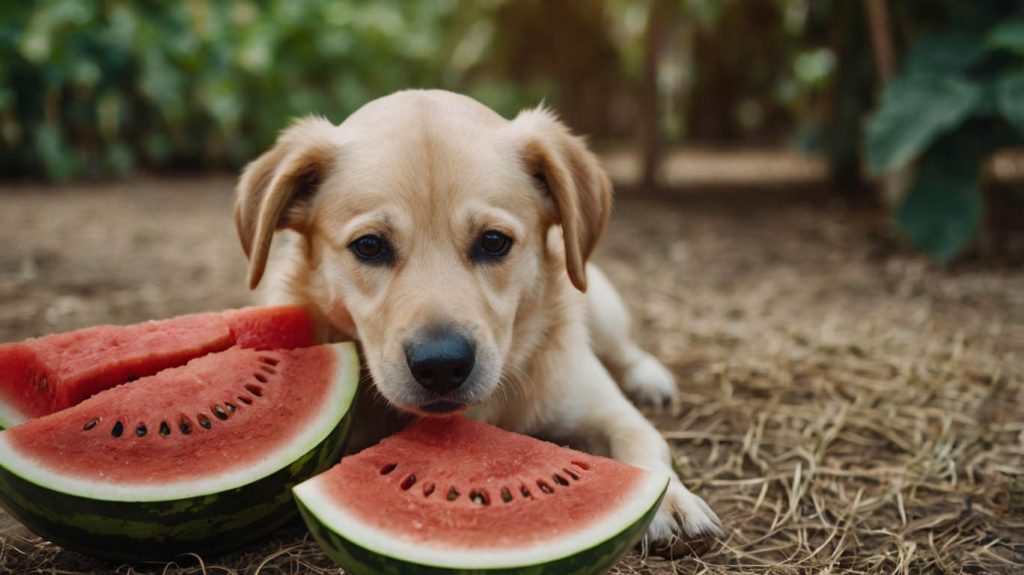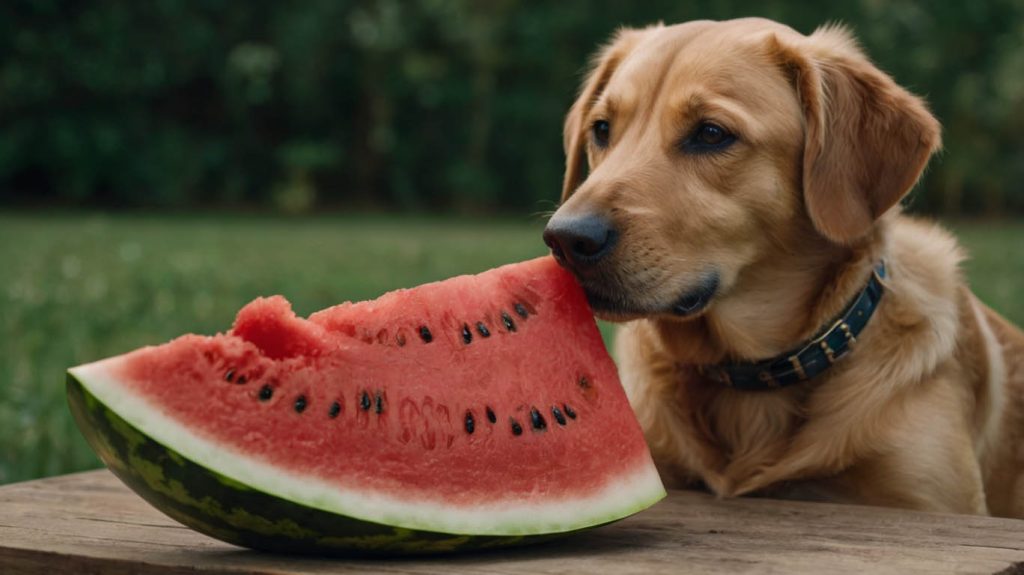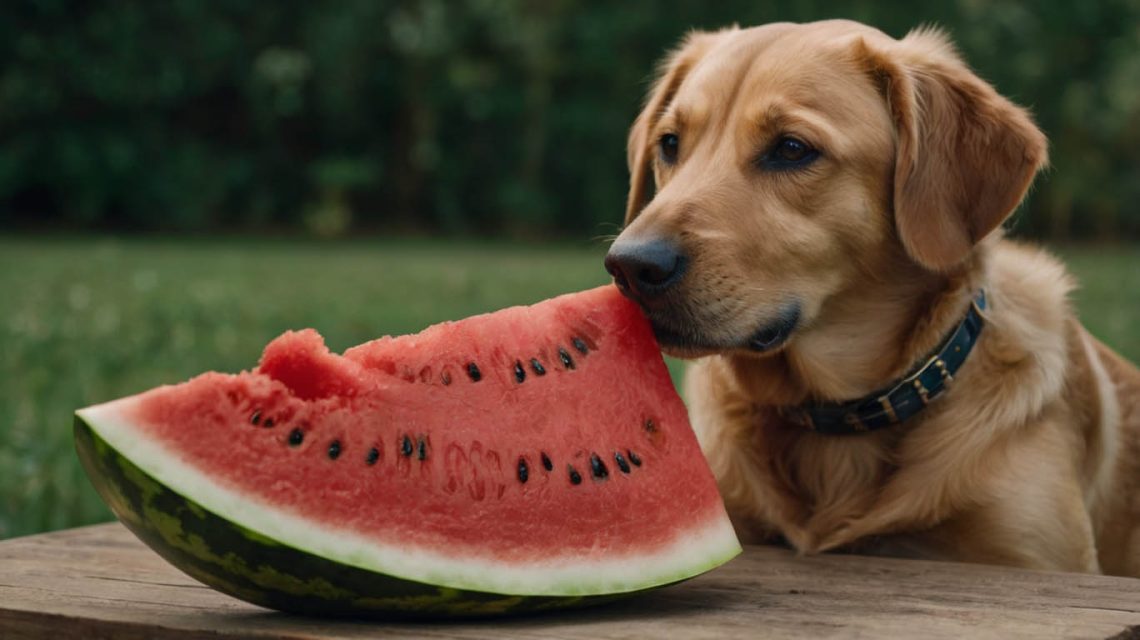The Ultimate Guide: Can Dogs Eat Watermelon?
It’s a hot summer afternoon, and you’re enjoying a juicy, refreshing slice of watermelon. Suddenly, you feel a familiar presence at your feet and look down into the pleading eyes of your canine companion. Their gaze is fixed on your treat, and a single thought crosses your mind: Can dogs eat watermelon? It’s a question thousands of responsible pet owners ask, especially when looking for a healthy and hydrating treat to share. The short and sweet answer is a resounding yes, but this simple answer comes with crucial safety guidelines that you absolutely must follow.
This article will tell the complete story of watermelon as a treat for your dog. We will begin by exploring the fantastic nutritional benefits locked inside this vibrant fruit. Subsequently, we will walk you through the potential dangers lurking in the seeds and rind, which must be avoided. Furthermore, we will provide clear, actionable advice on how to prepare it safely and determine the right portion size for your pup. Consequently, you will have all the information you need to confidently and safely share this delicious summer staple with your furry friend.
Why You Should Ask, “Can Dogs Eat Watermelon?”
Before we dive into the details, it’s important to recognize why questioning new foods is so vital for your dog’s health. A dog’s digestive system is different from a human’s, and many foods that are perfectly safe for us can be toxic or harmful to them (like grapes or chocolate). By asking can dogs eat watermelon, you are practicing responsible pet ownership and prioritizing your dog’s well-being. The good news is that when prepared correctly, watermelon is one of the safer and healthier “human foods” you can offer.

The Excellent Health Benefits When Dogs Eat Watermelon
Watermelon is more than just a tasty, sugary treat; it’s a powerhouse of nutrition that can offer several benefits to your dog, especially when given in moderation.
Optimizing Hydration with Watermelon
One of the greatest benefits of watermelon is its high water content. The fruit is composed of about 92% water, making it an excellent and flavorful way to help keep your dog hydrated on hot days. While it should never replace their primary source of fresh water, it’s a fantastic supplement after a long walk or a vigorous play session in the yard.
A Source of Essential Vitamins
Watermelon is packed with beneficial vitamins. For instance, it contains:
- Vitamin A: Important for vision, skin health, and immune function.
- Vitamin B6: Crucial for neurotransmitter function, hormone regulation, and red blood cell production.
- Vitamin C: A powerful antioxidant that helps reduce inflammation and combat cognitive aging.
Rich in Antioxidants like Lycopene
That beautiful red color comes from lycopene, a potent antioxidant that helps fight free radicals in the body. According to research from sources like the American Kennel Club (AKC), antioxidants like lycopene are beneficial for a dog’s overall health and can help prevent certain types of cellular damage.
The Dangers: What to Avoid When Dogs Eat Watermelon
While the fleshy pink part of the watermelon is safe, other parts of the fruit pose significant risks. This is the most critical part of understanding the answer to can dogs eat watermelon.
Why the Seeds Are a Problem When Dogs Eat Watermelon
Watermelon seeds are a major hazard. While swallowing one or two seeds is unlikely to cause harm to a large dog, they can cause an intestinal blockage if consumed in larger quantities. This risk is especially high for smaller dog breeds. An intestinal blockage is a serious medical emergency that often requires surgery. Therefore, it is always safest to remove all seeds or, even better, purchase a seedless watermelon.
Why the Rind Is Completely Off-Limits for Dogs
The tough, green rind of a watermelon is also dangerous. It is very difficult for a dog to digest and can lead to gastrointestinal upset, including vomiting and diarrhea. Moreover, large pieces of the rind present a significant choking hazard. Even if a dog manages to swallow a piece, it can cause a blockage in their digestive tract. Never allow your dog to chew on the watermelon rind.

How to Safely Serve Watermelon to Your Dog
Now that you know the benefits and the risks, here is the proper way to prepare this treat. Following these steps ensures a safe and enjoyable experience for your pup.
A Step-by-Step Guide to Preparing Watermelon
- Select a Seedless Watermelon: This is the easiest way to avoid the seed risk altogether.
- Wash the Outside: Thoroughly wash the rind to remove any pesticides or bacteria before you cut into it.
- Cut and Remove the Rind: Slice the watermelon and completely remove all of the green rind.
- Remove All Seeds: If you didn’t buy a seedless variety, meticulously remove all black (and even the white) seeds.
- Cut into Bite-Sized Cubes: Cut the pink flesh into small, one-inch cubes appropriate for your dog’s size to prevent choking.
How Much Watermelon Can a Dog Eat?
Moderation is key. Treats of any kind should only make up about 10% of your dog’s daily caloric intake. Watermelon is low in calories, but it does contain sugar. As a general rule:
- Extra-Small Dogs (under 20 lbs): 1-2 small cubes.
- Small to Medium Dogs (20-50 lbs): A small handful of cubes.
- Large Dogs (over 50 lbs): A larger handful (about a cup) of cubes.
Always introduce any new food slowly to see how your dog’s stomach reacts. This practice helps you understand can dogs eat watermelon in the context of your specific pet.
Creative and Fun Ways to Serve Watermelon
Want to make treat time even more special? Here are a few creative ideas.
- Frozen Watermelon Chunks: On an extra hot day, frozen cubes of watermelon make a long-lasting, cooling, and delicious treat.
- Watermelon Purée: Blend seedless watermelon flesh into a purée and pour it over your dog’s regular food for a hydrating flavor boost.
- Watermelon “Ice Cream”: Blend watermelon with a small amount of plain, unsweetened yogurt and freeze it in an ice cube tray for a healthy dog-friendly frozen treat. Explore our guide on [Safe Fruits and Vegetables for Dogs] for more ideas.
Your Final Answer on Watermelon for Dogs
So, let’s revisit our initial question: can dogs eat watermelon? The answer is a clear and confident yes, provided you serve it responsibly. By removing the seeds and rind and offering it in moderation, you can safely share this hydrating and nutritious fruit with your dog. It’s a wonderful way to include them in your summer traditions while giving them a treat that is both delicious and beneficial.
What is your dog’s favorite healthy treat? Share your ideas and experiences in the comments below! And for more information on what foods to avoid, don’t miss our essential article on [What Human Foods Are Toxic to Dogs: A Vet’s List].


